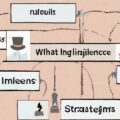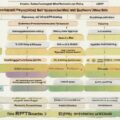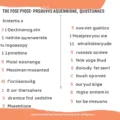Introduction
Resilience refers to the ability to cope with difficult situations and life challenges. Building resilience can help us deal with stress and adversity in a positive manner, promoting wellbeing and growth. Let’s look at 3 popular resilience scales that can be used to assess and develop resilience, focusing on our shared humanity and inner strengths rather than optimization.
1. The Brief Resilience Scale (BRS)
The Brief Resilience Scale is a 6 question scale that measures one’s ability to bounce back from stressful events. Some sample questions include:
- I tend to bounce back quickly after hard times
- It does not take me long to recover from a stressful event
2. The CD-RISC Resilience Scale
The Connor-Davidson Resilience Scale is a 25 item questionnaire that assesses several components of resilience like personal competence, acceptance of change, and control. Some examples of items on this scale are:
- I am able to adapt when changes occur
- Under pressure, I stay focused and think clearly
3. The Resilience Scale for Adults (RSA)
The Resilience Scale for Adults is a 33 item scale that measures personal resilience in 6 areas:
- Perception of self
- Planned future
- Social competence
- Family cohesion
- Social resources
- Structured style
Frequently Asked Questions
Why assess resilience?
Assessing resilience helps us identify strengths and areas for growth in coping with adversity. This can guide interventions to enhance wellbeing.
What are characteristics of resilience?
Key characteristics include adaptability, emotional regulation, optimism, social support, etc. Resilience involves thoughts, behaviors, and attitudes that promote wellbeing through difficult times.
Are resilience scales scientifically validated?
Yes, resilience scales have demonstrated reliability and validity through research. However, they have limitations and should supplement other assessments.
Can resilience be learned?
Absolutely. Through evidence-based strategies that target thoughts, behaviors, relationships and more, people can develop resilience skills over time.
What promotes resilience?
Protective factors like exercise, mindfulness, social connection, purpose, and growth mindset have shown to build resilience and wellbeing.









